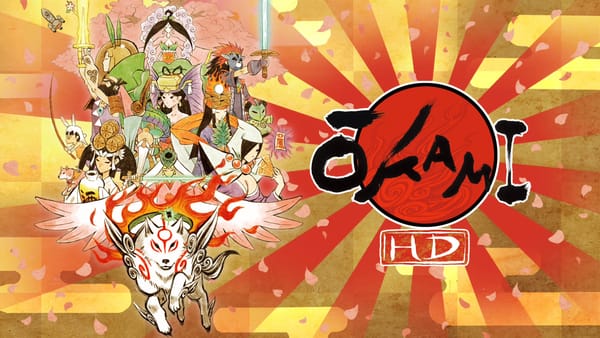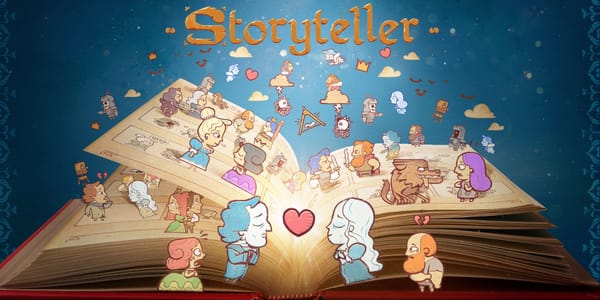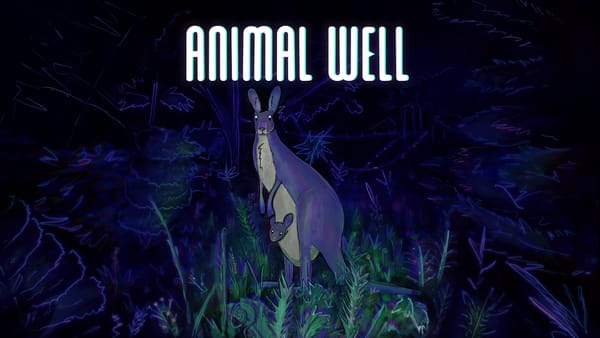Citizen Sleeper and choosing to stay
This game broke my heart
They say work isn’t everything, but in Citizen Sleeper, I chose it over love and safety, and I’m not entirely sure why.
You begin the game worse than broke, as you awake inside a metal shipping container, a brain in search of a body, trying to piece together who and what you are. You quickly remember: you are a Sleeper, an emulated consciousness living inside a robotic frame owned and controlled by Essen-Arp, a corporation that has designed you to be reliant on them for your very survival. You’ve escaped somehow, but the details are lost to you as you awake in such a foggy state. You need to find a way to maintain yourself, this you know, which means finding work, which is among the first things you do in Citizen Sleeper.
I love fiction that engages with labor. It’s a frustration of mine when reading a book if the characters seem to be magically absolved from the constraints of materiality in order to have more time to galavant about and progress the plot. I’m not saying every book needs to be about labor, but I do think one of the things you should ask yourself when writing is: “How does this character make a living?”
Citizen Sleeper asks that question readily and thoroughly, not just of the player character, but of the entire cast. The first person to help you, Dragos, is a salvager. Pitying you, he offers you work and shelter (that shipping crate you awoke in is his), but he keeps you at arm’s length. He doesn’t trust you entirely, but then he doesn’t trust anyone entirely. The moment I became too much of a liability to his means of making a living, he asked me to cease contact with him, which meant I could no longer work for him. That was that.
Citizen Sleeper progresses cycle by cycle (think of them as days). Depending on your character’s current health, you have anywhere from one to five dice to allot to various activities on Erlin’s Eye (or simply “the Eye”), the derelict space station that you now call home. Higher rolls mean higher chances of success, and lower rolls mean—well, you get it. Your character has modifiers to these rolls, but it’s a simple system from start to finish. You get X number of dice to accomplish Y number of things, and the clock is ticking on all of them. Early on, it’s all about survival. You work to get currency to keep yourself fed. You work to get currency to buy a stabilizer, which keeps your system from shutting down and resets the amount of dice you roll each cycle to the maximum of five. You work, truthfully, because it’s either work or die. You are desperate, and whatever grief you felt toward the shipping container where you sleep is quickly replaced with gratitude, simply for the fact of it being free.
Eventually, though, you find yourself using some of your dice to progress a plot you find interesting, or to help out your fellow worker. You build up a savings. Altruism is something you can finally afford.
You begin to form allegiances. Early on, I found myself drawn to Lem and Mina, a father-daughter pair. Lem is a worker—same as you—and a single parent. Appropriately, he’s exhausted the first time you meet him, lacking the resources to pay for childcare, and lacking the time to gain more resources on account of the lack of childcare. You can offer to help him by babysitting, which I chose to do. By that point, I’d earned enough currency and stabilizer to keep me going for plenty of cycles, even if I chose not to work, with enough stolen data saved up that I could cash it out at any moment to get even further ahead. Lem is grateful, and I grow closer to Mina, who asks me what it’s like to be a robot, which is what she starts calling me. A capital letter makes all the difference, though: Robot. Hello, Robot.
More than anything in Citizen Sleeper, it was Lem and Mina’s story and how it interwove with mine that broke my heart. I grew to love them both, and the feeling was reciprocated. Sure, Lem and I never said out loud that we loved one another, but it was clear. If not in words, then in action. At a crucial juncture, I chose to buy them passage to a nearby planet where they could start a better life. To convince Lem to go, I lied when he asked me whether I would be coming, too. I knew he’d only go if I promised to join them. When it was time, I walked with them to the ship, going through the motions, as if I, too, were ready to set off toward a better life. Once they were through the checkpoint, though, I turned away. It was enough that they could start a new life. As for me, there was work I’d left unfinished.
At first, I justified this decision from a meta perspective. I (Grayson) needed to see more of the game to write about it more thoroughly, and thus I chose to let Lem and Mina go on without me. The more I sat with it, though, the more I realized it wasn’t really that. I felt like I’d built a living on the Eye. I’d eked out enough currency and stabilizer to keep me going for as long as I wanted, really. But it was all reliant on my constant labor. So back to work I went, fulfilling duties for others, while somewhere out in space a man I loved realized both my gift and my betrayal. I hoped the girl I’d watched over—his girl, perhaps ours—would either forgive or forget me in time. I’d made a conscious choice to stay. But why? Why did I choose work over escape? What was wrong with me? The feeling only compounded when I chose a second time to remain on the Eye after another opportunity to escape presented itself. Again, I turned back. But toward what? Work? Endless work?
Citizen Sleeper is not yet complete. There is one final episode to be released soon. I suspect it will offer me another chance to escape my life on the Eye, to escape my endless labor in service of survival. I would love to think that I might choose escape this final time, but if Citizen Sleeper has taught me anything, it’s that I stay. In the face of love, or freedom, or new beginnings, I, the Sleeper, always seem to stay.





